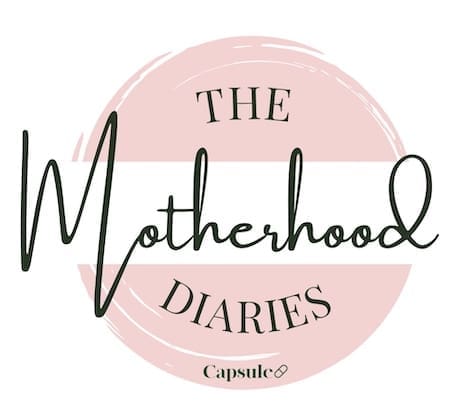
Welcome to our new series, The Motherhood Diaries – a safe space for you to share your experiences, advice, hopes and heartbreaks. We’ll be hearing from industry experts giving practical advice alongside Capsule readers (You!) sharing your firsthand experiences. We’re looking at everything from fertility, trying to conceive, pregnancy, the fourth trimester, newborns, toddlers, children’s mental health and teenagers and everything in between!


If you have a topic you’d like to discuss, share your thoughts, experience or advice about, drop a line to [email protected] with ‘Love’ in the subject line. All stories that are published will win three BOOST LAB serums following a Skin Advisor’s bespoke recommendation, worth $104.85.


Parenting coach Justine Lamont is a former lawyer who know helps Kiwi families of all ranges with practical, evidence-based parenting skills. She writes for Capsule about we can set up check-ins to help monitor our children’s mental health, in easy-to-achieve, non-intimidating ways!
Make checking in with each other a habit
What checking in looks like will depend on your particular child. Some children tend to bottle up their feelings and others let it all hang out. Whichever type of child you have everyone benefits from a regular habit of checking in. This could be over a family hot choc, on the way to the supermarket or a sports game. It could be a short walk around the block. Sitting on the end of the bed at night is the right way to make some space for some kids to talk. Be prepared to listen to some fairly irrelevant details before they tell you what could be bothering them. You might be surprised what you learn.
Spend time together and call it “special time”.
Special time doesn’t require money or special things. It’s about spending time and giving each child our undivided attention, usually doing something they like. Make a point to put phones away, so they know it really is their time. When there is more than one child, it can be hard for them to wait. Expect it to take time to build the habit and empathise when they find it hard to wait their turn. Older children could have special time waiting in the queue at the shops or a trip to the tool shop. It might not seem like much to us but it’s how we make it feel for them. “Hey – wow, we’re having special time.” For older children, quality time together could be making time to go to a local café or cook a simple meal like pancakes just for them to keep that connection going.
Pay attention to HALT.
‘HALT’ stands for being Hungry, Angry, Lonely or Tired. These triggers have a big effect on our mental health. Remember ‘HALT’ when you see a spike in unwanted behaviour. Parents can easily get caught up in the negative emotion and raising our awareness about HALT can help to avoid repeating patterns. The more we notice the triggers the better we are able to anticipate and even eliminate them from time to time. So if you know now that there was a reason for them feeling rotten, tell them. “I’m guessing you weren’t feeling your best earlier because you needed food/to vent/a hug/ a rest.”
Give them a ‘get out of jail free card’
When you were a teenager, chances are you or your friend did something that you regretted and you weren’t sure how to solve it. In those situations having a calm, alert and focused adult could have been a big help. What if our teens had been given a note like this one from their parents: “If you are scared to tell me something just bring this note as a reminder that I am here to support you. I won’t get mad, I will work with you on a solution.” Having a ‘get out of jail free card’, which they could use in that exact situation where they had stuffed up could be one way to support their mental health. Hands up if you’d like teens to say – ‘hmmm… I think this is a problem that mum or dad could help with?’
Keep a predictable routine
Routines help children feel safe, build habits and support their mental health. Getting up around the same time, going out in the morning and then being at home in the afternoons can be more about rhythms than precise timings. Do what suits your family to introduce a sense of predictability and structure to the family routine and your children will thrive.
Have family rules
Kids feel safe when they have clear, reasonable expectations that are communicated in advance and when parents follow through. The rules are the things that matter to us, our values. If ‘please’ and ‘thank yous’ matter, we will notice and mention them. If caring for others is important, we will spend our time doing that. We get more of what we pay attention to. So make a point to talk about what you think matters and why. Kids need rules to thrive and to have good mental health and they need to know that it’s ok to disagree with our rules, too. This doesn’t mean we give in, we want it to be an ongoing conversation about why we have our family rules. Good sleep routine is all about having a healthy lifestyle, not just ‘because I said so’.
Protect your children’s energy
Watch energy levels as the day goes on. Afterschool collapse is a common problem. Fatigue children feel after being on track all day long means they need time to decompress. We can protect children’s mental health by reducing stress at this time of the day. How many activities are they doing? What can we do to set children up well and to set a more realistic expectation? Dinnertime stress is more likely when we are all at a low energy level. For parents, we know we have to get everything done to get up and do it all again tomorrow. So if we are seeing a pattern of lack of engagement or increased resistance, reduce the expectation on your child to help protect their mental health.
Build their self-worth
Research from the Gottman Institute highlights a concept known as the golden ratio. For every negative interaction we need at least five positives to be able to feel motivated and good about ourselves. The way we talk about our children forms their inner voice. For our children to have a kind and loving inner voice, they need to hear themselves being described in a kind and loving way. This means being specific and descriptive when we talk to our children. Saying “Nice manners tonight at dinner, you’re a great kid”, is too vague and doesn’t give enough information for them to replicate it. An effective way to engage with them is to really notice and mention what was good and why. “I noticed how you remembered to offer the rolls at dinner and you didn’t mind waiting while I finished my call. I appreciated how polite you were.” It’s the way that we pay specific attention to what happens and how we acknowledge our child that makes it meaningful.
Show vulnerability
Our children feel the full range of emotion but do they know this is ok? When we are sitting and watching TV and a sad thing happens, we can say – “Those people must be sad, that looks rough.” When we hear about how a neighbour has come home from hospital and we share our relief, we are modelling how it’s ok to show uncomfortable emotions. Our children need to see adults showing it’s ok to have all the feelings, even the unpleasant ones. An adult who shares their story of how they faced their own struggles normalises the human experience of the full range of emotions. This is a powerful way to protect our children’s mental health.

